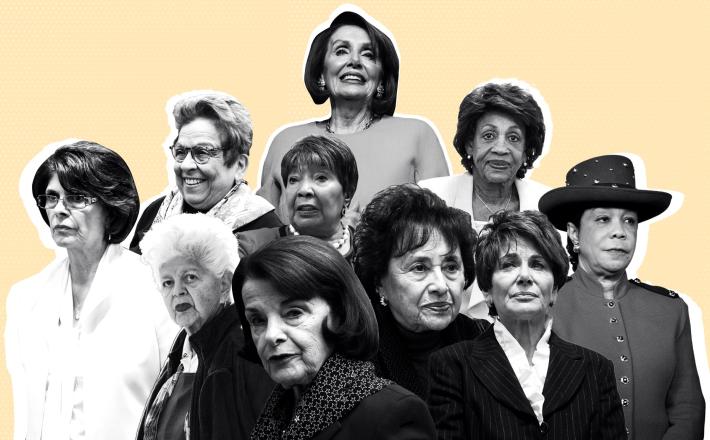Why longer lives mean the future of US politics is female
Source: Ozy
By Nick Fouriezos,
Women live longer than men. And in the realm of politics, simply sticking around has an advantage, as seniority often dictates power — particularly in Congress and state legislatures. But that hasn’t helped women traditionally. Until now.
For decades, men have more often gotten elected at a younger age, whereas women either struggled to win races or didn’t choose to join politics until after raising children. Take Nancy Pelosi, perhaps the most sustainably powerful female American politician in history, who won her first race in her late 40s. But the equation for a career in American politics is shifting in favor of women like never before, driven by a combination of advances in health and a surge of political activism.
People are living longer than ever before, with the average lifespan of Americans up from 74 years in 1980 to 79 in 2018. That helps women make up for their late starts into politics — particularly considering that, on average, they live a decade longer than men. That’s reflected in Congress: The 10 oldest women in Congress today average nearly 80 years, compared with just 74 years in 2009. At the other end of the spectrum, women are also running in (and winning) elections at a much younger age. The most recent two “youngest-evers” elected to Congress were women: Republican Elise Stefanik, who was 30 when elected in 2014, and Democrat Alexandria Ocasio-Cortez, who was 29 when she won last November. Will shorter runways and longer incumbencies solidify female power in Washington for decades to come?
Click here to read the full article published by Ozy on 5 June 2019.

By Nick Fouriezos,
Women live longer than men. And in the realm of politics, simply sticking around has an advantage, as seniority often dictates power — particularly in Congress and state legislatures. But that hasn’t helped women traditionally. Until now.
For decades, men have more often gotten elected at a younger age, whereas women either struggled to win races or didn’t choose to join politics until after raising children. Take Nancy Pelosi, perhaps the most sustainably powerful female American politician in history, who won her first race in her late 40s. But the equation for a career in American politics is shifting in favor of women like never before, driven by a combination of advances in health and a surge of political activism.
People are living longer than ever before, with the average lifespan of Americans up from 74 years in 1980 to 79 in 2018. That helps women make up for their late starts into politics — particularly considering that, on average, they live a decade longer than men. That’s reflected in Congress: The 10 oldest women in Congress today average nearly 80 years, compared with just 74 years in 2009. At the other end of the spectrum, women are also running in (and winning) elections at a much younger age. The most recent two “youngest-evers” elected to Congress were women: Republican Elise Stefanik, who was 30 when elected in 2014, and Democrat Alexandria Ocasio-Cortez, who was 29 when she won last November. Will shorter runways and longer incumbencies solidify female power in Washington for decades to come?
Click here to read the full article published by Ozy on 5 June 2019.